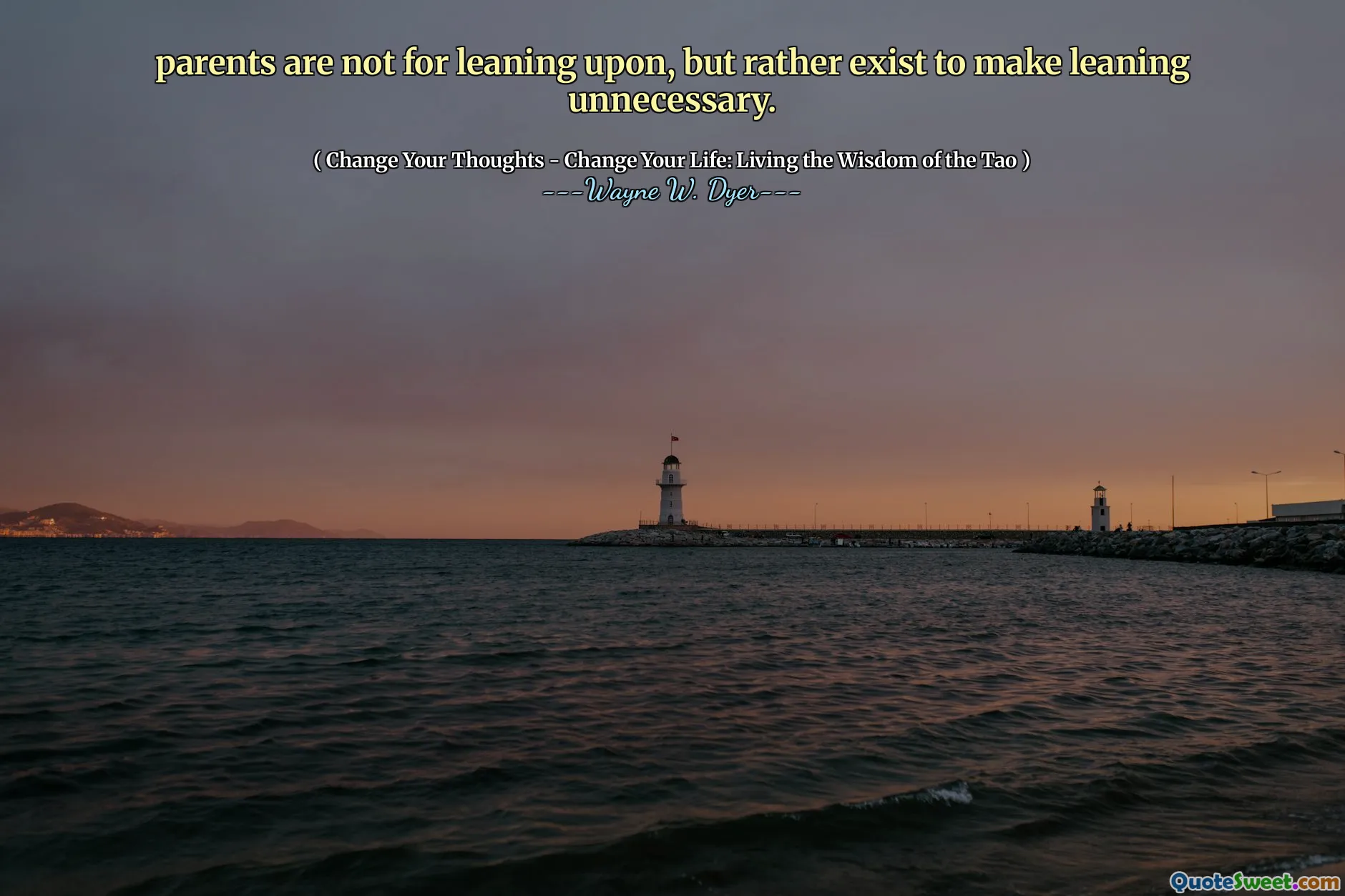
parents are not for leaning upon, but rather exist to make leaning unnecessary.
This quote from Wayne W. Dyer highlights a profound perspective on the role of parents in our lives. It suggests that the primary function of a parent isn't to serve as a perpetual support or crutch for their children, but to empower them with the skills, confidence, and independence necessary to stand on their own. In many cultures and personal experiences, there's a common misconception that parents are meant to constantly support, guide, and sometimes micromanage their children's lives. While guidance and support are crucial, over-reliance can hinder an individual's growth and self-sufficiency. Dyer reminds us that true parenting, and by extension, true mentorship or leadership, involves nurturing independence rather than dependency.
This idea encourages us to reflect on our relationships, whether as children, parents, mentors, or leaders. It prompts us to consider whether we are creating environments that foster personal growth or one where dependence persists. When children learn to make decisions, face challenges, and resolve issues independently, they develop resilience and confidence. The goal is not a dependency on others but a harmonious balance where support is available when needed, but the capacity to stand alone is cultivated.
In essence, this quote underscores the importance of empowering others. It shifts the focus from merely providing support to enabling individuals to thrive independently. This approach leads to more robust, resourceful, and self-reliant people, ultimately fostering a healthier, more confident society where individuals are equipped to handle life’s obstacles on their own.
Such a philosophy also resonates with the broader ethos of personal development—encouraging autonomy and inner strength as fundamental virtues. This mindset aligns with the wisdom found in ancient teachings that emphasize inner resilience, and it reminds us that the true purpose of guidance is to prepare others to navigate life without constant reliance on external support.








